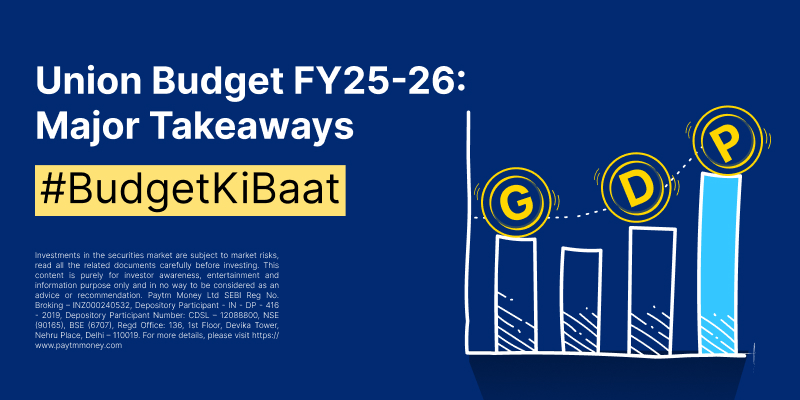Don’t wait for Emergency to create a fund!!6 min read
Contents
- So what is need of emergency funds and why should I build one?
- Give me some real examples when I will need an emergency fund?
- So what should be the ideal size of my emergency corpus?
- So where should I park my surplus savings to build this emergency corpus?
- Our recommendation to create the ideal emergency fund
- But how do I choose these funds?
I am already investing a portion of my monthly income in mutual funds to achieve my goals.
So what is need of emergency funds and why should I build one?
Well, as the name suggests, an emergency fund is a buffer that one creates to take care of emergencies that might crop up anytime unexpectedly and lead to stress on your monthly cash flows. In the absence of this corpus, you might have to turn to credit cards (annual interest rates can be as high as 40% – 47%), personal loans (interest rates can be up to 15% per annum plus processing fee) or other expensive borrowing options that might burn a bigger hole in your pocket. In case you already have big chunk of your savings parked in your savings bank account or fixed deposit and it is maintained that way, you need not create a fresh emergency fund. You can simply allocate the corpus into suggested investments, as discussed later in the blog, for tax efficiency.
To comprehend it further, let’s understand what an emergency fund is not?
- Emergency fund is not to be used to achieve your financial goals like purchasing your dream house, car or going on vacations etc.
- It should NOT be perceived as a huge corpus that one needs to create over the long term. One should create it over a few months and then leave it untouched unless needed. Make sure to keep adding to your emergency fund as your expenses increase.
- Also, an emergency fund is not a fixed corpus for everyone. It varies from person to person depending on their income and lifestyle needs
Thus, creating an emergency fund is a pre-requisite for a robust personal financial plan.
Give me some real examples when I will need an emergency fund?
In spite of proper planning, the following events can come up anytime that may require significant liquid assets (emergency fund) to fulfil the financial needs:
- Global/National emergency: The unexpected spread of the COVID-19 virus is a classic example of how an emergency can come knocking your door when you least expect it, how it can affect your business or professional life and can put financial pressures on you
- Unexpected Job loss: Even if you are working in a cushy private sector job, you cannot eliminate the remote possibility of a sudden job loss. In such an event, it will be a big hassle to manage payment of EMIs, Insurance Premiums etc. while taking care of your regular lifestyle expenditures
- Medical emergency: In spite of having a health insurance, there can be diseases that aren’t covered in your plan. Also your insurance plan might not be 100% cashless (you might have to bear 10%-20% of the expenses) or you may have to pay go for reimbursement instead of cashless.
- Planning a Sabbatical: You might want to take a break from your routine job to focus on completing a short course, work on something you truly want to, spend time with your family or go on a long vacation. Taking a sabbatical is leave without pay and absence of an emergency fund can force you to dip into your long term investments
Having a decent emergency fund in the above listed scenarios will ensure you can comfortably take care of your needs until you find a new job, take care of your family and be with them in times of need without putting unnecessary pressure on your cash flows.
So what should be the ideal size of my emergency corpus?
Your emergency corpus should ideally cover 6-12 months of expenses. You should chart out your monthly budget and start saving slowly and steadily to reach the corpus. As is evident, the corpus would completely depend on your lifestyle and needs. So it will be very different from person to person. This corpus would act as a cushion in the times of need and protect you from dipping into your other goal based investments or pawning of your jewellery or selling your house in the worst case scenario.
That was enlightening.
So where should I park my surplus savings to build this emergency corpus?
Safety and Liquidity are of paramount importance when you are building your emergency corpus. Generating returns is not the primary focus here. You have to ensure that the invested capital is always protected. Investing in equity exposes you to domestic and global economic risks while higher duration or riskier debt funds can result in interest rate or credit risk, thus eroding the invested capital. So parking your emergency funds in these avenues is a strict NO. The corpus should be in the most liquid assets so that you have the money at your disposal at the time of need. So avoid investing in instruments that are closed ended or have a lock period associated with them. Also, parking the corpus in Fixed Deposits or funds with exit loads can lead to deduction of returns at the time of redemption. There is a possibility that you might not need your emergency corpus for a long time, so having a small exposure in safer short term debt funds can generate higher returns for you.
Our recommendation to create the ideal emergency fund
- 30% of the corpus should be parked in a savings bank account for easy liquidity. Make sure that it is a different bank account from the account that you use for regular expenses, otherwise you might end up using it for an impulsive purchase. You can earn 3-4% on your investments here.
- 40-50% of your corpus should be parked in two or three good liquid funds. Ensure that the liquid funds provide instant redemption facility for more advantage. This can earn 5-6% per annum.
- Finally, 20-30% of your corpus can be parked in high credit quality money market, corporate bond or banking and PSU debt funds which will ensure your investments earn higher returns as funds might be parked for a long time in the absence of any emergencies. This can earn 7-8% per annum
Phew! That was a saver.
But how do I choose these funds?
You can pick out funds from the categories that we have talked about. This can be daunting given the large number of mutual fund schemes on offer and how difficult it can be to zero down on the right fund. To make this easier for you Paytm Money has a filtered list of funds in the Investment Idea section. The “Better than Savings Account” Idea can help you pick liquid funds. You can choose Money Market funds from “Better than Fixed Deposit” Idea while the “High Quality Debt Funds” Idea will help you choose Corporate Bond and Banking & PSU funds. Make sure you spread it across different AMCs while picking the funds to create your emergency corpus.




